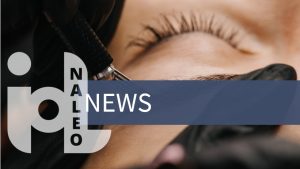Government seeks evidence to shape new tobacco and vapes regulations
The UK Government has launched a call for evidence to inform secondary legislation supporting the Tobacco and Vapes Bill, seeking expert views on new rules for retailers selling tobacco, vapes and other nicotine products and on measures to reduce youth vaping.
The call targets technical, operational and enforcement-focused evidence from public health experts, industry stakeholders, local authorities and licensing bodies to help design detailed regulations under the Bill.
The Tobacco and Vapes Bill
The Tobacco and Vapes Bill establishes a framework intended to create a smoke-free generation by preventing sales of tobacco to anyone born on or after 1 January 2009 and by strengthening controls over vapes and nicotine products to protect children and public health.
The Bill gives ministers powers to ban advertising and sponsorship of vaping products, regulate flavours, packaging and product appearance, control how and where products are displayed and sold, require product registration, and enable a new retail licensing regime. It also strengthens enforcement options and sanctions against illegal trading and provides the basis for secondary regulations that will set technical standards, safety requirements and penalties.
Proposed licensing regime
A central feature enabled by the Bill is a proposed retail licensing regime for the sale of tobacco, vapes and nicotine products. The government has indicated a two-tier approach separating a personal licence for individuals from a premises licence for retail locations, aimed at ensuring that only responsible retailers and staff can sell these products.
Licensing authorities would administer applications, renewals, suspensions and revocations and could attach conditions to licences. Penalties for unlicensed selling or breaches of licence conditions could include fixed penalties and higher fines through the courts. The licensing model is intended to deter rogue traders, support legitimate businesses that comply with rules, and provide a clearer enforcement route for local authorities while leaving scope for devolved administrations to adopt compatible or alternative arrangements.
Tobacco & Vapes Bill: Licensing, Impact and Industry response
Call for evidence: scope and questions
The call for evidence asks respondents to provide detailed, evidence-based input across multiple themes that will inform future regulations.
Key areas of inquiry include flavours and ingredients, focusing on which flavourings or additives present inhalation risks and how flavour names and descriptors influence youth appeal. The government requests evidence on nicotine strength and absorption across different product types to inform potential limits and on the public-health trade-offs associated with different strengths.
Device design questions seek evidence on how size, shape, colours, branding, resemblance to non-tobacco items and certain technologies affect attractiveness to children and whether technical limits or standards are needed.
The call also covers child resistance and safety measures, the impact of flavoured tobacco and accessories on uptake, the presence and sources of contaminants such as heavy metals, and evidence to support a UK product registration scheme requiring manufacturers to submit product data before market entry.
Specific questions address practical design of a retail licensing scheme, including application and renewal processes, licence conditions, administrative costs, impacts on legitimate retailers, and criteria for granting, suspending and revoking licences.
The government will review the evidence submitted through the call to decide whether and how to proceed with formal consultations and secondary legislation following the Bill’s passage.
The call for evidence is open for 8 weeks and will close at 11:59pm on 3 December 2025. If you respond after this date, your response will not be considered. The Institute of Licensing will be submitting evidence as part of this call for evidence.
Unlock Membership Benefits
Exclusive discounts, resources and insights for licensing professionals.
- Published:
- Categories: Bills/legislation, National News, Vapes/Tobacco
Share This
More News
London Assembly calls for cap on private hire licences amid concerns over driver safety and industry decline
The London Assembly urges the UK government to let TfL...
Read MoreGovernment report calls for regulation of skins gambling to protect young players
The Department for Culture, Media and Sport (DCMS) has published...
Read MoreNew gambling deposit limit rules provide clarity for consumers
From 30 June 2026 all online operators must provide customers...
Read MoreNon-surgical Procedures and Functions of Medical Reviewers Bill Published
A new Bill to regulate some of the most commonly...
Read More


